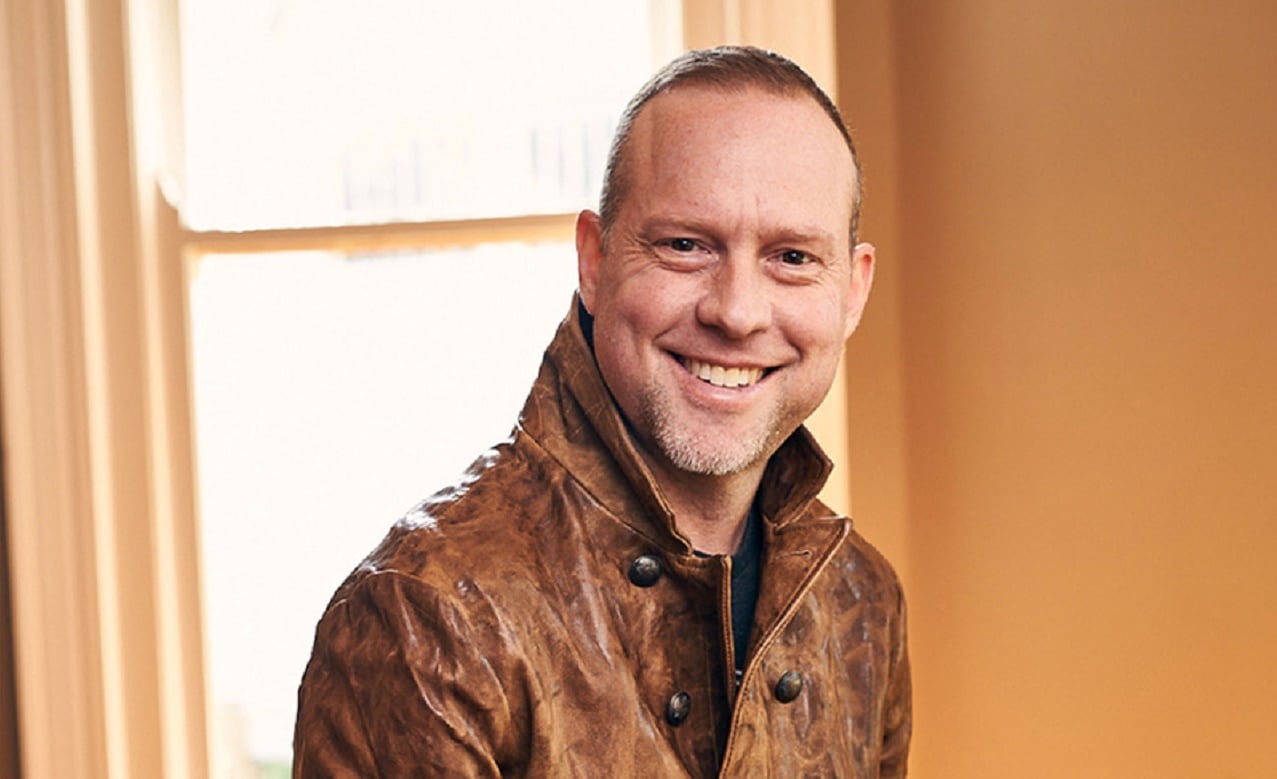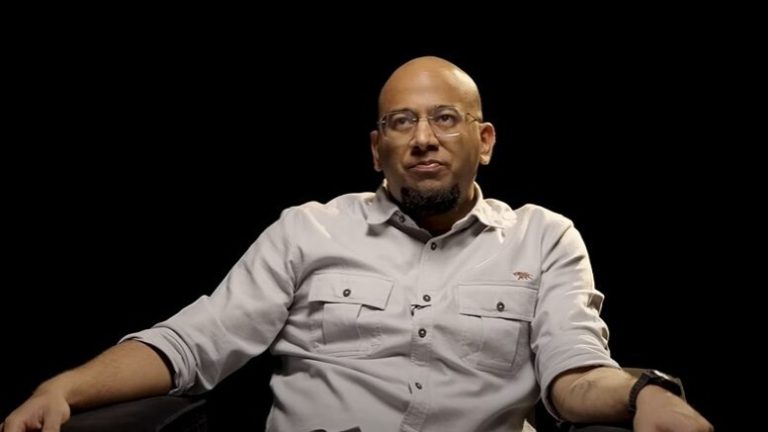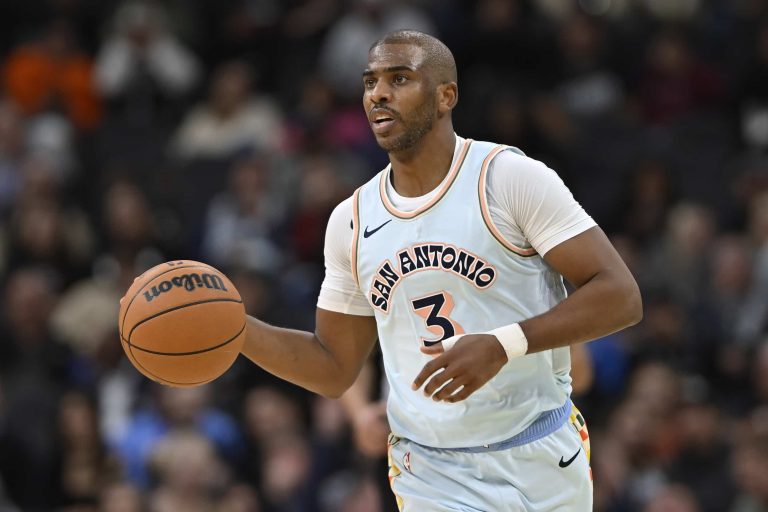In the past year, Nashville-headquartered ONErpm has continued its remarkable growth trajectory, positioning itself as one of the music industry’s most significant independent players.
But don’t make the mistake of calling it an ‘independent distributor’. For one thing, it’s much more than that.
For another, ONErpm’s founder, Emmanuel Zunz, looks with disdain at the very phrase.
Founded in 2010 and entirely self-funded, ONErpm is on track to hit around USD $300 million in gross revenue this year.
The company operates in 40+ territories globally and claims a 2.7% worldwide market share on Spotify (Zunz says ONErpm is SPOT’s sixth-largest partner in terms of stream volume).
ONErpm also counts itself among YouTube‘s largest music partners worldwide with 1.2 billion subscribers across its network – generating over 23 billion monthly views.
Zunz’s fully-owned company isn’t just racking up impressive numbers on a macro level – it’s also infiltrating the ‘premium’ music industry’s favorite status-concreters: ONErpm artists have garnered 150+ Grammy and Latin Grammy nominations since 2017, with 25 wins.
ONErpm’s recent global chart-botherers include Dominican artist Chimbala (whose Che Che went viral across 12 countries) and US singer-songwriter Chance Peña (whose i am not who i was has earned over 410M global streams and RIAA Gold certification).
It also works with Nigerian artist Chike, whose Egwu stormed charts across Africa for over six months, generating over 350M global streams.
Zunz bristles at traditional industry categorizations. As he puts it: “There are no more ‘distribution’ companies, and there are no more ‘record labels’. There are just companies providing solutions to creators.”
It’s a philosophy that runs through everything ONErpm does, from basic distribution agreements to full label services deals, catalog acquisition, and joint ventures.
He says this kind of well-financed flexibility has kept ONErpm stubbornly independent while competitors have sold to major labels or sought private equity investments.
When we sit down with him, Zunz is characteristically direct about the industry landscape, recent M&A activity, and why he believes old music biz distinctions are increasingly meaningless…
It’s been a year since we last caught up with you properly. How many times in the past 12 months has ONErpm been approached with discussions about investment, equity, acquisition, etc?
It’s a regular occurrence; private equity companies contact us all the time. That’s been going on for years – they’re persistent.
Sometimes I’ll have a conversation with them, but mostly I just don’t respond.
Why have you always said no?
Because I don’t need to say yes… and they always want to get a lower valuation anyway! Those are the two main reasons.
I was just talking to somebody the other day who approached us in 2018. I told him what the company’s price was back then. He said that he brought it back to his board, and they laughed. Now we’re worth five or six times that. He said they now regret their decision — and the fact that they didn’t take us seriously.
Why do you think so many other companies in your field have said yes to a sale/investment?
The market today is very difficult.
To be honest, many of our competitors have focused on short-term market share growth at the sacrifice of long-term sustainability. They might rise quickly in market share and have some quick successes, but it’s not a long-lasting strategy.
“many of our competitors have focused on short-term market share growth at the sacrifice of long-term sustainability… we’re not willing to do that.”
People are getting tired of this race to the bottom [in terms of companies overpaying advances to win clients in ‘distribution’]. It’s difficult to compete when companies – either those with private equity funding, or the majors – are willing to sacrifice long-term sustainability in exchange for short-term market share growth.
We have never been willing to do that, so we might grow a little slower than others. But our company is very sustainable, with a solid profit margin, so we can withstand these [market pressures] for however long we need to.
What do you make of the Downtown–FUGA/Universal deal? Will it go through in Europe?
I think it will go through. But, to me, Downtown is an example of a company that accepted a lot of investment money while ramping up market share via deals I suspect I wouldn’t do. I’d say the same thing about Believe. I don’t care if they get pissed off at me; that’s my opinion.
Universal is paying Downtown a nice chunk of change, and Downtown should be very happy with what they’re getting.
I responded to the European Commission’s questionnaire [about the deal], and I basically said to them, over and over again: there are plenty of alternatives [to UMG/Downtown] for independent artists and labels in the market.
“I responded to the European Commission’s questionnaire [about the deal], and I basically said to them, over and over again: there are plenty of alternatives [to UMG/Downtown] for independent artists and labels in the market.”
If Universal [acquires Downtown/FUGA] and then tries to raise the price and/or lower the service, people will leave — and there are many other options for them.
Also, technologically speaking, I don’t believe it’s that hard to [rival] what FUGA or Downtown does at this point [by committing] the right level of investment in your platform.
I told the EC my feelings on the deal are neutral. It’s not going to really help or hurt me; it’s just neutral.
You spoke last year on the MBW PODCAST about hoping to grow by 50 to 60% in the next two years. Halfway through that two-year period, how is that plan looking?
I’m not having to revise that forecast right now.
What’s fuelling that growth?
More market penetration and geographic expansion, as well as buying more assets and doing higher margin deals with the artists who want to do them.
Also, again, we’re comfortably profitable – which means we can use our own cash flow for more sustainable deals.
Are there any geographical areas you would highlight as being part of that growth?
Right now we’re much more focused on Africa and Asia, there’s a lot of opportunity in those markets.
We’re maybe a little bit late to the game, but that never stopped us before.
You’ve always been big in Latin America – for example, you are a major market player in Brazil. You’re also a significant force in the United States. What do you make of the slowdown in streaming growth in ‘established’ markets like the US, especially considering your company’s income is balanced across multiple global territories?
I think there’s a lack of innovation right now in [established] markets like the US, both on the label side and on the [digital] platform side.
Music’s in a rut from an innovation standpoint. The growth that we had hoped to get from platforms like Meta and ByteDance didn’t really pan out; they’re just not paying very much.
But I think there will be more innovation soon, especially in the direct-to-consumer area. I don’t think anybody’s really figured that out yet.
Direct-to-fan platforms or apps that coincide with streaming, YouTube, and live shows could surge consumption and monetization.
It’s ONErpm’s 15th anniversary this year. Looking back, what are your most vivid memories of founding ONErpm, and what do you remember about your ambitions back then?
I always thought it could be the next big thing in the music industry – a new way of doing business, a new type of record label – and that’s still our path.
We’re trying to build the record label of the future: a label that’s transparent, that can service creators from all walks of life.
“We’re trying to build the record label of the future: a label that’s transparent, that can service creators from all walks of life.”
We’re quite differentiated in how we approach the business and how we service our clients – the technology that we’ve built, the types of deal structures that we have. We’ve really innovated a lot on all those fronts.
But we still have a long ways to go – my work is not done. We’re a work in progress.
What are you proudest of achieving in those 15 years?
I’m proud that we contributed to the evolution of the industry in a positive way.
I’m proud of being one of the first companies to help artists in Latin America make money. I’m talking about money for tens of thousands of artists that they’d previously not been seeing. We helped transform that market in the process, making it fairer.
I’m proud of moments like that, where we turned what was negative into a positive. That’s what I’ve tried to do with every aspect of my life, personally and professionally.
“We helped transform the Latin American market, making it fairer.”
As entrepreneurs, that’s what we should be doing: providing solutions. Always seeing the opportunity, no matter what.
I’m also very proud of the technology we’ve built and of the team we’ve built. We have many long-term employees who have been with the company for many years, some for over a decade.
I have folks who started with ONErpm as their first job, and they’re still working here today.
What’s the best decision you’ve made in the past 15 years of ONErpm?
In 2013 I was offered $4 million for the company, then a month later I was offered $8 million. And at that point I decided, ‘Okay, I’m not selling.’
That was definitely one of the best decisions, because I really didn’t know the value of the company at that time. And $4 million seemed like a ton of money back then.
“I’m glad that I’ve never taken any investment capital. It gives me complete freedom and autonomy to build this business the way I want.”
But I’m glad I didn’t take it, I’m glad I didn’t take the offer for double that a month later, and I’m glad that I’ve never taken any investment capital.
It gives me complete freedom and autonomy to build this business the way I want.
Once you have other stakeholders, you lose control, and then you know you could be forced into doing things you don’t want to do.
We’ve stumbled into a raging industry debate, about the definition of being ‘independent’. What does it mean to you?
Being independent doesn’t just mean ‘not being part of major’.
If you take a ton of money from outside capital, you’re not independent anymore. Sure, you’re not part of the major label system, but you’re still not fully in control of your destiny.
“If you take a ton of money from outside capital, you’re not independent anymore.”
The word ‘independent’ isn’t used appropriately in the market today.
There’s another music industry trade media publication that celebrates the ‘independent power players’ – something like 80% of them are [associated with] major labels! I don’t understand that.
you do many different deal types, from rights ownership to distribution and everything in between. Is that the reason you don’t like the terms ‘independent distributor’ and ‘record label’?
ONErpm isn’t something you can put in a box and categorize. We do DIY distribution, we do indie distribution, we do licensing, we sign artists, we buy catalogs, we do JVs, we invest in record labels, we do all of these things.
This is a diversified music company for the modern era. That’s why I think it’s the record label of the future.
But even companies that consider themselves ‘full service record labels’ or ‘indie distributors’ are kidding themselves. A full-service record label can provide distribution – see: Taylor Swift – and an indie distributor can, on a successful project, ramp up their staff and provide full label support.
“A full-service record label can provide distribution – see: Taylor Swift – and an indie distributor can, on a successful project, ramp up their staff and provide full label support.”
So when Robert Kyncl [CEO of Warner Music Group] says ‘we’re not going to buy any distribution companies anymore, we’re going to build our own’ – I think he’s missing the point, missing what’s happening in the industry today. It’s an old school view of things.
There are really no more ‘distribution companies’ or ‘record labels’; there are just companies that provide solutions to creators and negotiate and obtain certain rights in exchange for those solutions.
Your own tech platform – the ‘ONE System’ – enables you to handle and monitor clients on different deals, in multiple territories. It also enables those clients to track marketing, monitor campaigns, and see how their music is performing. How advanced is it?
It’s a global, transparent platform for artists, no matter what level of service or investment they need [ONErpm] to offer. And because it’s flexible enough to accommodate all deal types and all territories, it gives us economies of scale.
I suspect a lot of legacy record labels, specifically the majors, have old, antiquated systems, and it’s very hard for them to create a new ecosystem within which they can operate to give them those economies of scale.
“I’m confident ONErpm is further ahead of anyone in terms of single-platform tech innovation.”
Some have done better than others: Sony and The Orchard have done a good job of getting people on the same platforms.
But I’m confident ONErpm is further ahead of anyone in terms of single-platform tech innovation – and it’s my job to keep us in that leadership position.
The next step is for us to show that the model we’ve developed in Latin America and the US works in Africa, Asia, and other markets. And that’s what we’re going to do.Music Business Worldwide







